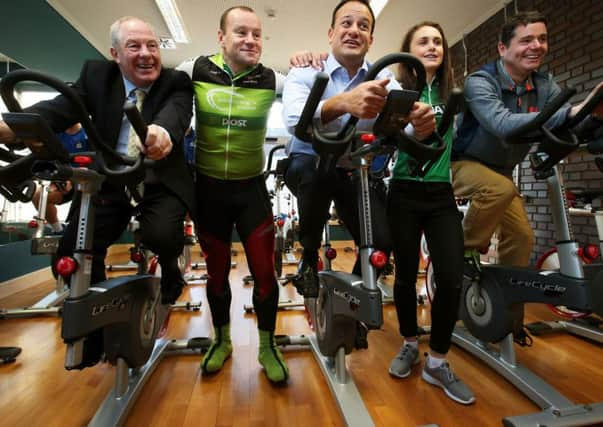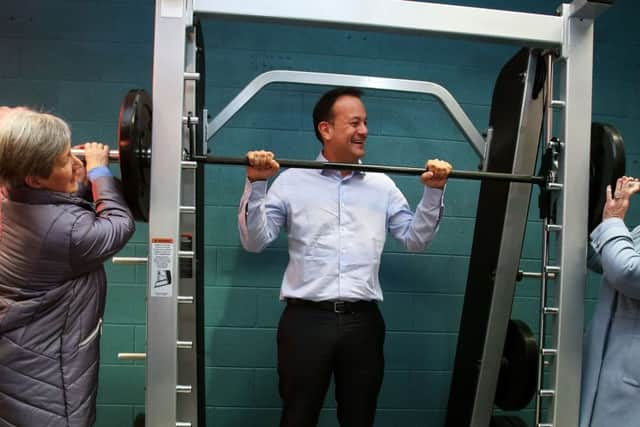Standing desks among Government measures to get country fitter


The move is part of a new policy to get an extra 50,000 people every year taking regular exercise over the next decade.
Health Minister Leo Varadkar said the National Physical Activity Plan, the first of its kind in Ireland, would cut the country’s rising health bill.
Advertisement
Hide AdAdvertisement
Hide Ad“We’ve made great progress on smoking and now we need a similar focus on alcohol misuse, obesity and physical inactivity,” he said.


As well as encouraging walking, cycling and other exercise initiatives, officials will “push” bosses towards healthier workplaces to include “standing desks and other measures”.
Both the Department of Health and the Health Service Executive are drawing up proposals for the workplace plan, which is to be finalised next year.
Sitting for long periods at work is linked to a number of health problems, which experts believe are not undone by working out before and afterwards.
Advertisement
Hide AdAdvertisement
Hide AdIt is thought to slow metabolism and impact on the body’s ability to control blood pressure, sugar levels and the breakdown of fat.


Prolonged inactivity is blamed in cases of cancer, heart disease, type 2 diabetes and poor mental health.
The Government says “stark” evidence shows a significant section of the population does little or no exercise at all.
Official guidelines on sedentary behaviour are being drawn up.
Advertisement
Hide AdAdvertisement
Hide AdThe National Physical Activity Plan also aims to set up 500 new community walking groups around the country.
Medics will be trained to prescribe exercise to prevent or treat chronic conditions while a new subject called Wellbeing is being introduced to schools, under the blueprint.
Planning chiefs are also to be ordered to “prioritise” walking and cycling routes as well as parks in the design of towns and cities.
Less than a fifth of school children do enough physical activity while one in four are unfit, overweight or obese, according to the Department of Health.
Advertisement
Hide AdAdvertisement
Hide AdIt also says less than a third of adults are as active as they should be.
“We all know it’s important to take regular exercise and eat well and it’s also the best way to tackle rising health costs in the long term,” said Mr Varadkar.
“But the evidence shows clearly that we’re not doing enough of it.
“There are millions of reasons why this is happening: lifestyles, time constraints, lack of information, or just the weather outside.
Advertisement
Hide AdAdvertisement
Hide Ad“That’s why we’ve put together this really wide-ranging plan to make it easier for everyone to exercise, no matter who they are or where they live.”
Separately, new research shows that over-50s can improve their mental health and overall wellbeing by walking for just two-and-a-half hours every week.
Academics at Trinity College Dublin said their study on ageing reveals only three in five middle-aged and older people walk the recommended amount.
Those who do report greater participation in social activities, less anxiety, better quality of life and less loneliness.
Advertisement
Hide AdAdvertisement
Hide AdDr Orna Donoghue, who manages the Irish Longitudinal Study on Ageing, said: “Walking is a simple and accessible activity for most people and walking just 150 minutes is sufficient to achieve improved mental health and better quality of life.”